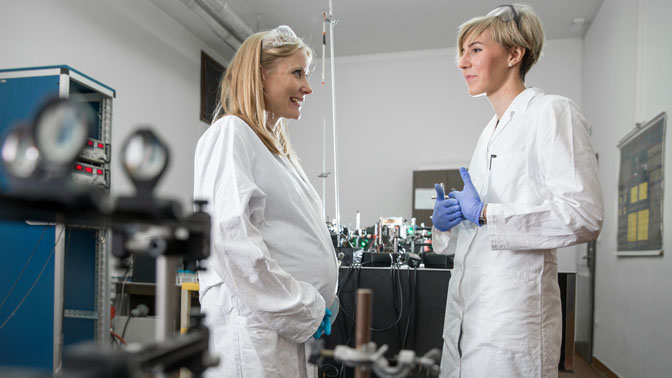
By: Michael Chang, ORT Times Writer
At the University Health Network, the policies and resources regarding maternity leave for research trainees are different for graduate students and postdoctoral fellows. For students, benefits are provided through their university, which for the University of Toronto (UofT) is the School of Graduate Studies (SGS). UofT SGS’ Leave of Absence Policy allows for up to three academic sessions of leave (i.e., 12 months). SGS offers a Parental Grant Program for PhD students that provides up to $8,000 for birthmothers on leave for ≥two sessions (≥8 months). Also, students who are CUPE3902 members (i.e., teaching assistants that work 50+ hours/year) may qualify for the Childcare Financial Assistance Fund. Students can book appointments with a UofT graduate peer advisor to get tailored assistance with UofT’s policies/resources regarding maternity leave. Additionally, CIHR and NSERC scholarship holders may receive up to six months of paid parental leave; external scholarships from another source may also have similar supports in place, so it is important to check. Unfortunately, most students do not pay into Employment Insurance (EI), and would not be able to collect EI’s parental leave benefits. For fellows who do pay into EI, they can apply to Service Canada for employment insurance. They may qualify for up to 18 months of maternity leave, if they have worked for at least 600 hours of insurable employment. Additionally, fellows may be supported by external funds for maternity leave (e.g., CIHR/NSERC and CCSRI).
It is more important than ever to provide the structural and cultural support to new mothers in research. Medical researchers who have children during their training face many challenges, including difficulty with childcare, challenges surrounding the logistics of breastfeeding, and the long and unpredictable work hours that all trainees experience. These challenges can lead many individuals to postpone having children, or lead others to exit STEM careers following the birth of their first child (e.g., a recent study on full-time positions and parenthood). Furthermore, as pregnancy and motherhood have no effect on general cognitive ability or intelligence (Hoekzema et al., 2016), the loss of a highly trained intellectual talent pool for reasons related to child birth is particularly erring. Fortunately, support for trainees who become parents during their studies has improved in recent years, with material supports such as maternity/paternity leave policies and increasing acceptance that trainees may have lives beyond the lab—which includes creating and nurturing human life. Future directions to support UHN research trainees who become parents during their training would be to create on-site childcare facilities across its network.
Reference
Hoekzema, E., Barba-Müller, E., Pozzobon, C., Picado, M., Lucco, F., García-García, D., Soliva, J.C., Tobeña, A., Desco, M., Crone, E.A., Ballesteros, A., Carmona, S. & Vilarroya, O. (2016) Pregnancy leads to long-lasting changes in human brain structure. Nat. Neurosci., 20, 287.




